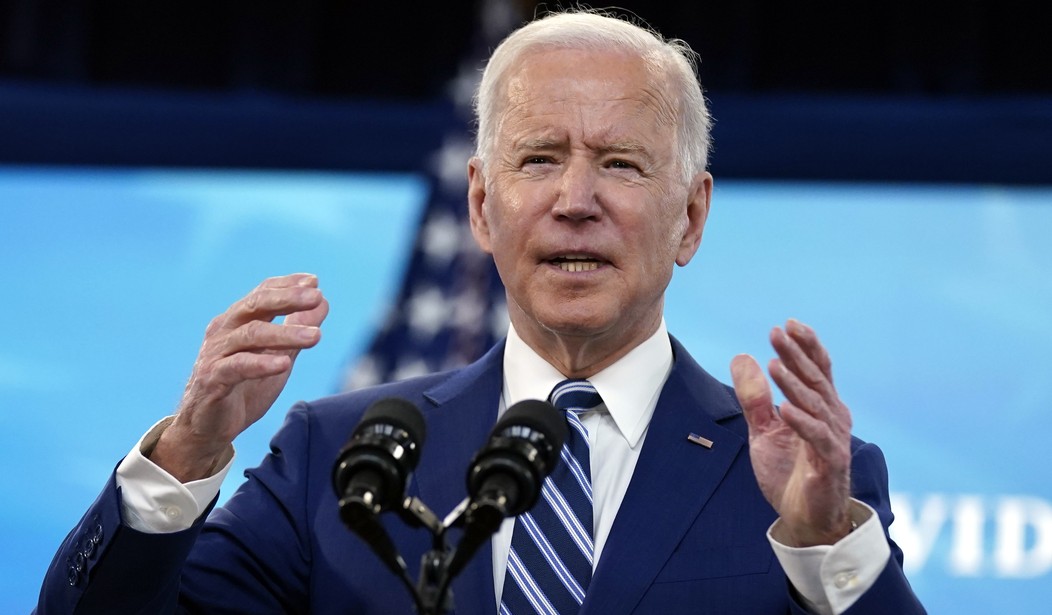It didn’t take long to backpedal from the White House’s previous “America first” position. When India pleaded with the Biden administration for materials and vaccine precursors, the official State Department response on Friday was that “the United States first and foremost is engaged in an ambitious and effective and, so far, successful effort to vaccinate the American people.”
By yesterday, Joe Biden had changed direction:
Just as India sent assistance to the United States as our hospitals were strained early in the pandemic, we are determined to help India in its time of need. https://t.co/SzWRj0eP3y
— President Biden (@POTUS) April 25, 2021
The media had begun to ask some pointed questions about the wisdom of ignoring the world’s biggest outbreak in the world’s largest democracy. That appears to have pushed the White House into a fairly significant reversal, and the launch of what will become the US effort on COVID-19 diplomacy. And it’s just in the nick of time, apparently:
India is fighting a devastating second wave of Covid-19 that is killing thousands each day, with more than a million new cases recorded in just three days. For the past two weeks, medical facilities have been running out of oxygen and ICU beds. https://t.co/rg8lgm6wXI pic.twitter.com/VTFUz2GPyP
— CNN (@CNN) April 26, 2021
So what will the US send? Everything but the vaccines themselves, at least for now:
The Biden administration, under growing pressure to offer more assistance to India as it struggles to contain a devastating coronavirus outbreak, promised Sunday to provide new aid, including the materials for making vaccines.
The pledge came hours after Indian authorities announced another global record in new daily cases Sunday and the most covid-19 deaths the country has suffered in a 24-hour period.
The National Security Council said the United States would provide vaccine materials, drugs, test kits, ventilators and personal protective equipment.
In a PR offensive intended to showcase the new policy, Anthony Fauci also suggested that vaccines might be part of the effort. We have tens of millions sitting around here, after all:
STEPHANOPOULOS: We have about 30 million doses of that AstraZeneca vaccine that aren’t approved for use here. Shouldn’t we just be sending that over?
FAUCI: You know, I think that’s going to be something that is up for active consideration, George, certainly. I mean, I don’t want to be speaking for policy right now with you, but, I mean, that’s something that certainly is going to be actively considered.
This makes sense, as I wrote on Saturday, since we’ve been sitting on those doses for months while the FDA and CDC await fresh AstraZeneca data:
The CDC and FDA will eventually approve the AstraZeneca vaccine, but we probably won’t need it to hit our targets. It’s a low-hanging-fruit opportunity to show some solidarity, even if it’s on a “loan” basis, as we arranged for the AZ shipments to Canada and Mexico, both of whom are desperate for more doses of any vaccine they can get.
Whether we eventually approve them or not, those doses aren’t doing anyone any good sitting in storage. It makes sense to send them to cool down a hotspot that could be breeding new variants that will make current inoculations less effective. We appear to have secured enough doses already to complete full vaccination in the US; the issue here is willingness, not supply, or at least it will be shortly enough. Why not come to someone else’s aid at this point?
That makes this a good decision by Biden, one that would have been inevitable at some point anyway. India’s a great place to start rolling out the US’ vaccine diplomacy for several reasons, including strategic and humanitarian considerations. However, it would have looked much better had the White House made those calculations on Thursday or Friday, rather than pushing back first with its own version of “America first.” While the intent might be laudable, this is a global pandemic, and outbreaks elsewhere present new risks here. Once we secured enough doses from Pfizer, Moderna, and Johnson & Johnson to ensure our own security, we should have moved with more alacrity to take global leadership. Fortunately, it’s not too late to make that shift.








